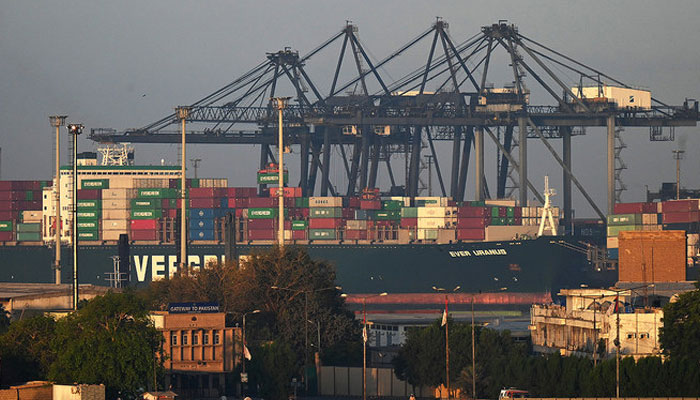A parallel economy
Smuggling poses an increasingly troublesome and complex challenge for Pakistan. Often labeled as an underground economy, it detrimentally affects revenue collection, fostering tax evasion and leaving a substantial dent in the national exchequer.
Former governor of the State Bank of Pakistan (SBP) Dr Ishrat Hussain says, “Sixty per cent of the national economy is outside the tax net.” This highlights the magnitude of this undocumented economy. This clandestine economic activity undermines border sovereignty, impedes law enforcement, erodes government authority, and hampers the country’s journey towards self-sufficiency.
Tax evasion not only affects the overall development of the country but also triggers inflation as the burden to minimize the deficit is passed on to the public. According to a 2022 report from the Research and Development Department of the Lahore Chamber of Commerce and Industry, 11 identified smuggled goods cause a staggering loss of $9 billion, equivalent to 3.0 per cent of the country’s Gross Domestic Product (GDP).
Unofficial estimates place the size of Pakistan’s undocumented economy at over 50 per cent of the GDP, resulting in an annual loss of $150 billion. Consequently, Pakistan’s tax-to-GDP ratio is merely 10 per cent, one of the lowest globally.
Smuggling is not only detrimental to the local industry, compromising its competitive capacity, but also takes the form of a parallel economy, discouraging legal imports and depriving the country of significant revenue. This practice undercuts the prices of locally manufactured goods, leading to the collapse of local industries and diminishing the nation’s faith and dignity in its own identity.
Addressing this issue is crucial, as smuggling promotes and legitimizes the use of counterfeit and fictitious invoices, directly undermining the national treasury. Economist Ha-Joon Chang emphasizes the humanistic dimension of development, stating that material progress is a means, not the end of development.
Documentation of the economy is a vital goal, and the Federal Board of Revenue (FBR) encourages people to ask for receipts when making purchases, emphasizing the role of individual habits in boosting the economy by accelerating the documentation of the undocumented sector.
The inclusion of industrialization in the 2030 Agenda as Sustainable Development Goal 9 (SDG 9) underscores the importance of reducing unethical practices for the wellbeing of people.
While a significant crackdown on smugglers and hoarders has been initiated, it is imperative to continue mobilizing against illegal cross-border trade until those involved are exposed and punished. Now is the time for collective effort to reject smuggled items for the greater good of the country.
The writer is a freelance contributor. He can be reached at: mycolachi@gmail.com
-
 Jelly Roll Explains Living With 'severe Depression'
Jelly Roll Explains Living With 'severe Depression' -
 Charli XCX Applauds Dave Grohl’s 'abstract' Spin On Viral ‘Apple’ Dance
Charli XCX Applauds Dave Grohl’s 'abstract' Spin On Viral ‘Apple’ Dance -
 Anna Sawai Opens Up On Portraying Yoko Ono In Beatles Film Series
Anna Sawai Opens Up On Portraying Yoko Ono In Beatles Film Series -
 Eric Dane's Wife Rebecca Gayheart Shares Family Memories Of Late Actor After ALS Death
Eric Dane's Wife Rebecca Gayheart Shares Family Memories Of Late Actor After ALS Death -
 Palace Wants To ‘draw A Line’ Under Andrew Issue: ‘Tried And Convicted’
Palace Wants To ‘draw A Line’ Under Andrew Issue: ‘Tried And Convicted’ -
 Eric Dane's Girlfriend Janell Shirtcliff Pays Him Emotional Tribute After ALS Death
Eric Dane's Girlfriend Janell Shirtcliff Pays Him Emotional Tribute After ALS Death -
 King Charles Faces ‘stuff Of The Nightmares’ Over Jarring Issue
King Charles Faces ‘stuff Of The Nightmares’ Over Jarring Issue -
 Sarah Ferguson Has ‘no Remorse’ Over Jeffrey Epstein Friendship
Sarah Ferguson Has ‘no Remorse’ Over Jeffrey Epstein Friendship -
 A$AP Rocky Throws Rihanna Surprise Birthday Dinner On Turning 38
A$AP Rocky Throws Rihanna Surprise Birthday Dinner On Turning 38 -
 Andrew Jokes In Hold As BAFTA Welcomes Prince William
Andrew Jokes In Hold As BAFTA Welcomes Prince William -
 Sam Levinson Donates $27K To Eric Dane Family Fund After Actor’s Death
Sam Levinson Donates $27K To Eric Dane Family Fund After Actor’s Death -
 Savannah Guthrie Mother Case: Police Block Activist Mom Group Efforts To Search For Missing Nancy Over Permission Row
Savannah Guthrie Mother Case: Police Block Activist Mom Group Efforts To Search For Missing Nancy Over Permission Row -
 Dove Cameron Calls '56 Days' Casting 'Hollywood Fever Dream'
Dove Cameron Calls '56 Days' Casting 'Hollywood Fever Dream' -
 Prince William, Kate Middleton ‘carrying Weight’ Of Reputation In Epstein Scandal
Prince William, Kate Middleton ‘carrying Weight’ Of Reputation In Epstein Scandal -
 Timothée Chalamet Compares 'Dune: Part Three' With Iconic Films 'Interstellar', 'The Dark Knight' & 'Apocalypse Now'
Timothée Chalamet Compares 'Dune: Part Three' With Iconic Films 'Interstellar', 'The Dark Knight' & 'Apocalypse Now' -
 Little Mix Star Leigh-Anne Pinnock Talks About Protecting Her Children From Social Media
Little Mix Star Leigh-Anne Pinnock Talks About Protecting Her Children From Social Media




